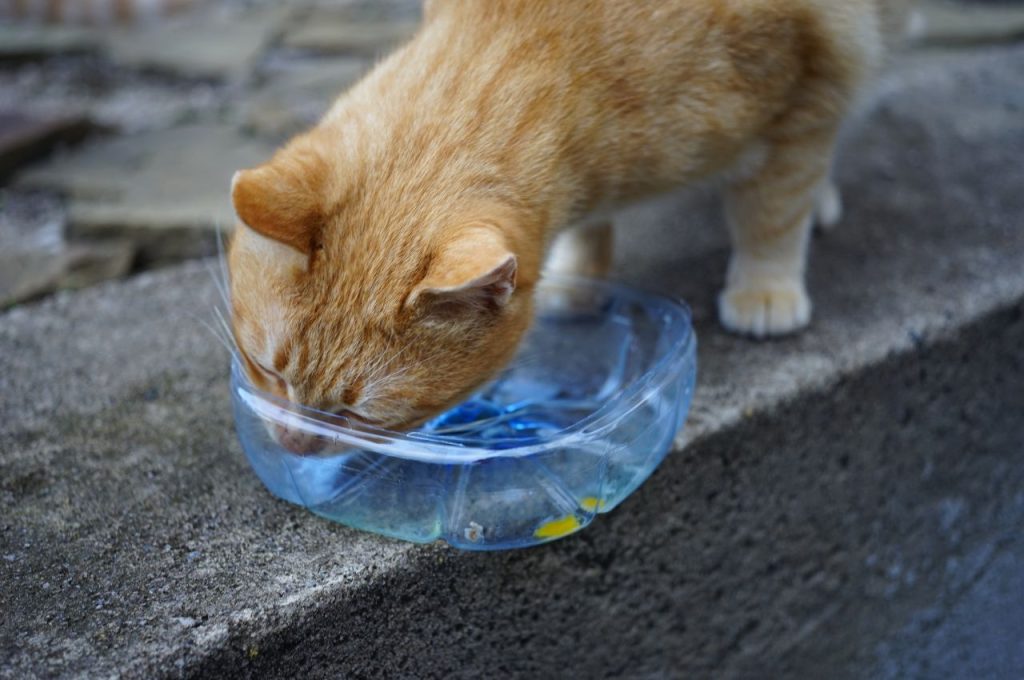While cats can eat eggs, they should be cooked and served in moderation. Raw eggs may contain bacteria that can be harmful to cats. Cooked eggs provide a good source of protein and essential nutrients. However, it’s important to avoid seasoning the eggs with salt, spices, or additives.
When it comes to a cat’s diet, many pet owners wonder if their feline friends can eat eggs. Well, the good news is that yes, cats can indeed eat eggs! While this may come as a surprise to some, eggs can be a nutritious addition to a cat’s diet.
Eggs are a great source of protein, which is essential for a cat’s overall health and development. Not only do eggs provide all of the essential amino acids that cats need, but they also contain important vitamins and minerals like vitamin A, vitamin D, and selenium. However, it’s important to note that eggs should always be cooked before giving them to your cat to avoid the risk of bacteria like salmonella.
The Pros and Cons of Feeding Eggs to Cats
Eggs are a common household ingredient that many of us enjoy as part of our daily diet. But what about our feline companions? Can cats eat eggs? This question has sparked a lot of debate among cat owners and experts. While some believe that eggs can be a nutritious addition to a cat’s diet, others are concerned about potential health risks.

One of the main benefits of feeding eggs to cats is their nutritional value. Eggs are an excellent source of protein, which is essential for muscle growth and maintenance. They also contain essential amino acids, vitamins, and minerals that contribute to overall feline health. Additionally, eggs are a natural source of omega-3 fatty acids, which are beneficial for a cat’s coat and skin.
However, it’s important to consider some potential downsides before introducing eggs into your cat’s diet. Some cats may be allergic to eggs, which can cause digestive upset, skin irritation, or other allergic reactions. Additionally, raw eggs can harbor bacteria such as Salmonella or E. coli, which can pose a risk to both cats and humans. That’s why it’s crucial to cook eggs thoroughly before feeding them to your cat.
If you’re considering adding eggs to your cat’s diet, it’s crucial to do so in moderation. Too much egg can lead to dietary imbalances or contribute to weight gain in cats, so it’s essential to consult with your veterinarian to determine the appropriate amount. A balanced and varied diet is key to providing optimal nutrition for your feline friend.
So, can cats eat eggs? The answer is yes but with caution. Eggs can be a valuable addition to a cat’s diet, providing essential nutrients and promoting healthy skin and coat. However, it’s crucial to cook the eggs thoroughly and introduce them gradually to ensure your cat’s comfort and well-being.
The Nutritional Benefits of Eggs for Cats
Eggs are often lauded for their impressive nutritional profile, and this extends to their potential benefits for feline health.
Here are some of the key nutrients found in eggs and how they can contribute to a cat’s well-being:

1. Protein
Protein is an essential component of a cat’s diet, as it provides the building blocks for muscle growth and maintenance. Eggs are an excellent source of high-quality protein, containing all the essential amino acids that cats need. By incorporating eggs into your cat’s diet, you can ensure that they receive an adequate amount of this vital nutrient.
Additionally, protein is important for supporting the immune system and promoting overall health. It helps strengthen the cat’s body, supports tissue repair, and aids in the production of enzymes and hormones. Therefore, eggs can play a role in maintaining your cat’s overall well-being.
However, it’s essential to remember that protein should make up a specific percentage of a cat’s total diet. Consult with your veterinarian to determine the appropriate amount of protein your cat needs, as individual requirements may vary based on age, weight, and health conditions.
2. Vitamins and Minerals
Eggs are not only a good source of protein but are also rich in essential vitamins and minerals. They contain vitamins A, D, E, and B12, which are important for various bodily functions. These vitamins contribute to the health of the cat’s eyes, bones, skin, and nervous system.
In addition, eggs provide important minerals such as selenium, iron, and zinc. These minerals are involved in numerous physiological processes and are essential for maintaining a cat’s overall health and well-being.
By incorporating eggs into your cat’s diet, you can provide them with a natural source of these essential nutrients, supporting their overall health and vitality. However, it’s important not to rely solely on eggs as a nutritional source and to ensure a balanced diet that includes other necessary food groups.
Potential Risks and Precautions
While eggs can offer nutritional benefits to cats, they also come with some potential risks that need to be considered:

1. Allergies
Just like humans, some cats may have allergies to eggs. Signs of an allergic reaction in cats can include diarrhea, vomiting, upset stomach, excess gas, or skin irritation. If you suspect that your cat is allergic to eggs, it’s essential to discontinue feeding them and consult with your veterinarian for further guidance.
If your cat has a known allergy to eggs or is predisposed to food allergies, it’s best to avoid introducing eggs into their diet altogether.
2. Bacterial Contamination
Raw eggs can harbor bacteria such as Salmonella or E. coli, which can pose a risk to both cats and humans. These bacteria can cause foodborne illnesses, leading to symptoms like diarrhea, vomiting, fever, and abdominal pain.
To avoid the risk of bacterial contamination, it’s crucial to cook eggs thoroughly before feeding them to your cat. Cooking eggs eliminates harmful bacteria and ensures the eggs are safe for consumption.
Additionally, it’s important to practice proper food safety and hygiene when handling eggs to prevent cross-contamination. Wash your hands thoroughly after handling raw eggs or any surfaces that may have come into contact with them.
Frequently Asked Questions
Here are some commonly asked questions about whether cats can eat eggs.
1. Are eggs safe for cats to eat?
Yes, eggs can be a safe and healthy addition to a cat’s diet when fed in moderation. Eggs are a good source of protein and contain essential amino acids that are beneficial for cats. However, it’s important to cook the eggs before offering them to your cat, as raw eggs can contain bacteria such as Salmonella, which can be harmful to cats and humans.
When feeding eggs to your cat, it’s best to prepare them plain, without any seasoning or additional ingredients. Scrambled eggs, boiled eggs, or poached eggs are all suitable options. Remember to remove the shell before serving, as it can be a choking hazard for cats.
2. Can eggs be a part of a cat’s regular diet?
Eggs can be included as a part of a cat’s regular diet, but they should not be the sole source of nutrition. Cats are obligate carnivores, which means they require a diet primarily composed of animal-based protein. While eggs provide a good source of protein, they should be offered in addition to balanced commercial cat food or a veterinarian-approved homemade diet that meets all of their nutritional requirements.
It’s also important to note that every cat is unique, and some cats may have allergies or sensitivities to eggs. If you’re introducing eggs into your cat’s diet for the first time, it’s recommended to start with small amounts and monitor for any adverse reactions, such as gastrointestinal upset or skin irritations.
3. Are there any benefits to feeding eggs to cats?
Feeding eggs to cats can offer several benefits. As mentioned earlier, eggs are a good source of protein, which is essential for muscle development and overall growth. They also contain vitamins such as vitamin A, vitamin D, and vitamin B12, which are important for a cat’s immune system, vision, and metabolism.
In addition, eggs can be a helpful addition to a cat’s diet if they have a sensitive stomach or if they’re recovering from an illness. The gentle nature of eggs can be soothing to the digestive system and provide a readily digestible source of nutrients.
4. How should eggs be prepared for cats?
Eggs should be cooked thoroughly before being served to cats. Raw eggs can pose a risk of bacterial contamination. It’s recommended to boil, scramble, or poach the eggs without any added seasoning or ingredients. Avoid using butter or oil when cooking the eggs, as excess fat can be detrimental to a cat’s health. It’s important to remove the shell before feeding, as cats can choke on it.
It’s also worth noting that cats may have preferences when it comes to the texture of the eggs. Some may prefer scrambled eggs, while others may enjoy boiled eggs. Observing your cat’s preferences can help make mealtime more enjoyable for them.
Conclusion
While cats can eat eggs, it’s important to do so with caution and in moderation. Eggs can offer a range of nutritional benefits for feline health, including protein, vitamins, and minerals. However, potential risks such as allergies and bacterial pollution need to be considered.
If you choose to feed your cat eggs, ensure they are thoroughly cooked to eliminate any potential bacterial contamination. Monitor your cat’s response to the eggs and consult with your veterinarian for guidance on portion sizes and potential dietary adjustments.
By following these guidelines and considering both the benefits and risks, you can make an informed decision about whether to incorporate eggs into your cat’s diet. Your veterinarian can provide personalized recommendations based on your cat’s individual needs and health status. Always prioritize your cat’s well-being and consult with a veterinary professional for any concerns or questions regarding their diet.
